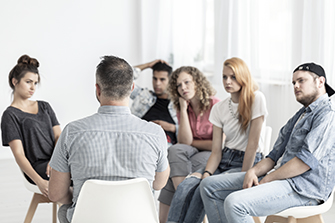Repairing Broken Women and Men
Frederick Douglass is reported to have said, “It is easier to build strong children than to fix broken men.” It is something I think about often in my work as a person with substance use disorderion researcher. When I hear the life stories of those who seek treatment for their addictions, if I am not careful to do my best to be the “detached” “scientific” observer, I can become disheartened. I never hear stories that begin, “I had a perfect upbringing, with parades and enough money to meet our needs and tuned in parents….”Outside the USA, I hear stories about apartheid, torture, and poverty of a type that is incomprehensible, and here I hear stories about child abuse, neglect, lack of opportunity, racism, poverty and overwhelmingly in all cases, lack of hope. It is the hopelessness that disturbs me most because it is that which we can do the most about.
As a person with substance use disorderion treatment professional, I would make the case that substance abuse and addiction is almost entirely preventable. Even among those who take a genetic view of the disorder, those who have the “genes” are not pre-destined to become addicts. There is always a precipitating occurrence that begins the addiction. It might be a traumatic event, injury, illness (such as one that requires long-term pain management), peer pressure or even social oppression (ever wonder why there are higher rates of substance abuse among the Irish or Native Americans than other populations?). What would the world look like if we eliminated those precipitating factors as much as possible? How would our communities change if we each reached out a hand to one vulnerable person before addiction and hopelessness took hold? I’d like to challenge you to do just that.
I’d like to work myself out of a job. I’d like to live in a community in which there was so much social support and community-mindedness that I wouldn’t need to research the various ways we can try to repair broken (wo)men. If you want to be part of the solution, here are a few things you can do:
- Mentor: Become a Big Brother/Big Sister or the leader of a Girl Scout or Boy Scout troop or a 4H club. There’s hardly one among us who isn’t “too busy,” but if we’re all too busy, who will serve as the critical mentors to the young people in our communities? Every one of these organizations needs volunteers. You can serve right where you are and for just a few hours a week, share your interests with those who need your attention.
- Social Action: There are many activities in your local community that seek to give opportunities to those who don’t otherwise have them. Perhaps you like gardening. Then why not get involved with (or start) a community garden and teach gardening skills to those who suffer from food insecurity? There are job training organizations that help veterans re-skill and enter the job force and high schools and colleges across the nation are on the lookout of individuals who will provide internships to eager young people. Do your part.
- Vote: It doesn’t matter what your political affiliation is, there are always ballot measures, such as bond measures to provide funding for schools, education programs, and public parks and libraries. Get the knowledge you need to make an informed decision about these issues; then vote.
It takes far less effort than you realize to raise strong children. Be that person those around you can count on not just for a smile, but for an “’Atta Boy/Girl!” and the guidance young people need. The difference you make in one person’s life changes that person’s world. That is your legacy – to change the world one life at a time.
The Best Call You Will Ever Make
Call Now to Speak Confidentially with an admission counselor.
